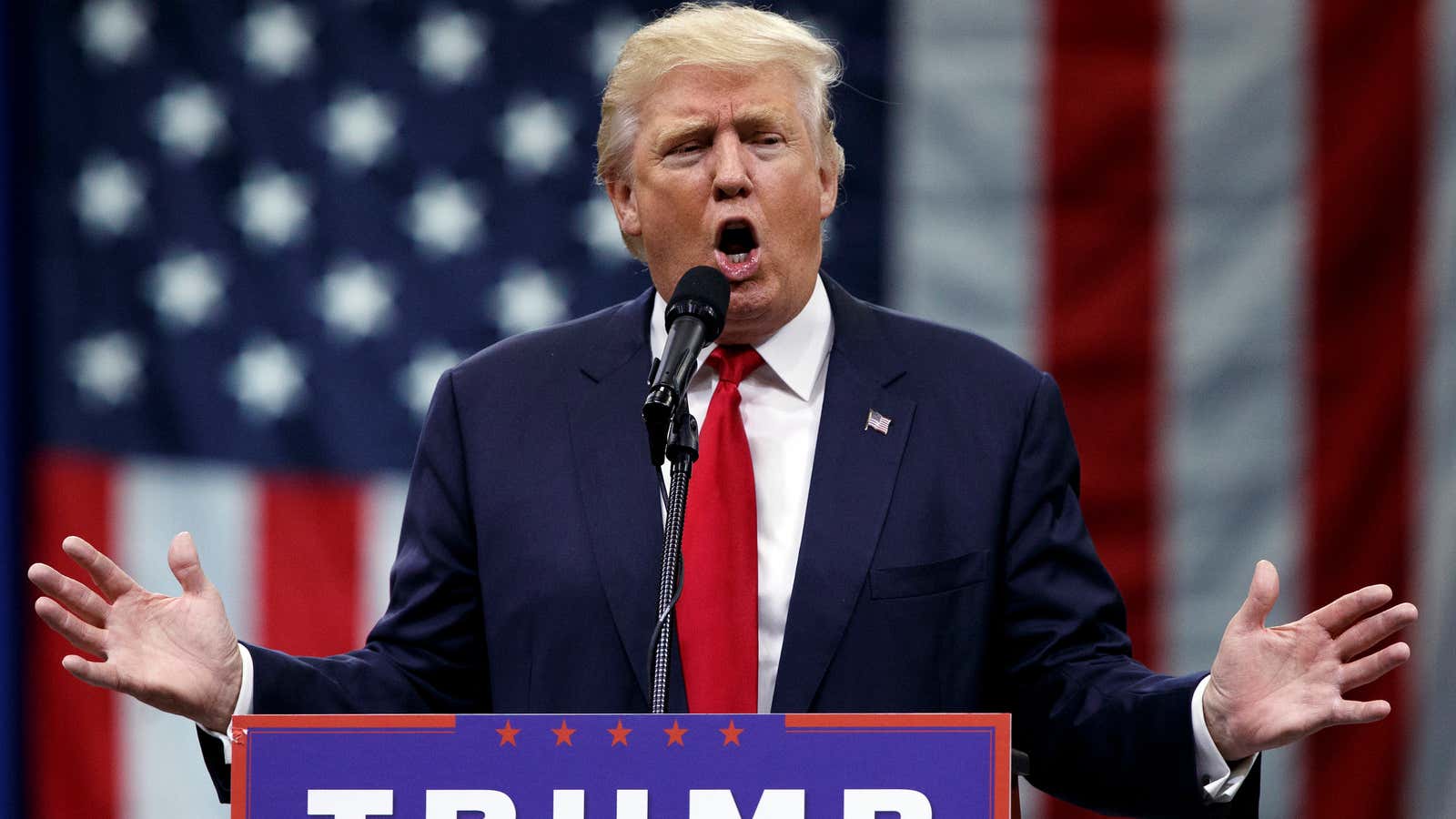With the election just a few months away, pundits continue to try to solve the mystery of Donald Trump’s popularity. Among the explanations political commentators have offered so far during the 2016 presidential cycle is that Trump appeals to voters because he seems authentic. “For many election cycles now, Americans have pined for a straight-talking, truth-telling, spontaneous, unpackaged, unrehearsed savior to redeem our vapid, scripted politics,” David Greenberg wrote in a 2015 article for Politico. With his willingness to violate social norms and make off-the-cuff remarks, Trump certainly comes across as true to himself. By contrast, many voters (including Jon Stewart) seem to think Hillary Clinton’s public persona comes off as controlled, cold, and fundamentally inauthentic.
As a social psychologist, it’s easy to see how these perceptions have taken hold. From a psychological standpoint, authenticity involves being true to oneself by behaving in ways that reflect one’s values, motives, beliefs, and dispositions. On the surface, this certainly sounds like an important trait. But a closer look reveals that authenticity is not an unmitigated virtue. And it certainly may not be a desirable characteristic in a president.
Voters began emphasizing the importance of candidates’ apparent authenticity during the last 25 years of the 20th century, according to Erica Seifert, author of The Politics of Authenticity in Presidential Campaigns. As Baby Boomers reached voting age, they began to apply the counterculture’s call for people to “be real” to their evaluations of elected officials.
But how do voters determine who is authentic and who is not? Research shows (pdf) that we are more likely to assume that people’s behaviors are a true reflection of their beliefs, attitudes, and personality when they violate social norms or behave in socially undesirable ways. When people act in normative, conventional ways—by holding the door open for a stranger, say, or by saying “thank you” when receiving a gift—we can’t be confident about what they are actually like. They might be conforming to the situation (social norms suggest that we should hold doors for people) or managing their impressions (wanting to be seen as appreciative). But when a person strays from socially acceptable behavior, we attribute their actions to their inner dispositions and conclude that the person is being authentic.
Perhaps this is one reason why Donald Trump is perceived as more authentic than Hillary Clinton. Whether or not we like it when Trump insults Ted Cruz’s wife or suggests that Russia hack Clinton’s emails, we sense that we are seeing Trump as he is because many of his actions violate the typical behavior of presidential hopefuls. By contrast, Clinton’s more circumspect behavior leads some people to wonder whether they are seeing the real person. Ironically, then, the more “presidential” a candidate behaves, the less authentic he or she may appear.
But the problem with unmitigated authenticity is that being true to oneself can create serious problems. In order for civilized society to function, people need to learn to restrain authentic impulses that might hurt themselves or others—no matter how genuine those beliefs and urges might be. A thoroughly authentic president could not be counted upon to check his temper during diplomatic negotiations, for example.
Given this reality, I don’t think that most voters actually want an authentic president. Instead, I think they are conflating honesty with authenticity.
It is only natural that voters should want to elect an honest president. But honesty is not a matter of authenticity. For a person who ascribes to Machiavellian values, lying and deceit are quite authentic behaviors. Voters want elected officials to tell the truth, whether doing so is authentic to their own personalities or not.
On this count, both of the major party candidates fall short. Both Trump and Clinton have told lies, albeit one far less frequently than the other. And recent polls show that neither candidate is seen as very trustworthy by the general public. But Trump’s supporters, at least, perceive him as honest. How can we explain this, given that he has said so many things that are either factually untrue or clearly inconsistent with other things he has said?
Trump’s spontaneous style may play a role. People who respond quickly, without apparent deliberation, are viewed as more truthful and credible (pdf) than those who hesitate before they speak. Of course, spontaneity does not necessarily mean that a person is telling the truth. But research shows that observers perceive it that way.
For all of us, life is a series of balancing acts—between candor and politeness, spontaneity and deliberation, standing firm and giving in, telling the truth and twisting it, pursuing our own interests and looking out for others. Our ability to navigate these competing pressures in a flexible and adaptive way determines the quality of our lives and the well-being of the people with whom we interact.
Presidential candidates face these competing pressures as well. But the question we ask in order to determine their suitability for the post should not be whether they are “authentic.” When it’s time to decide whether to go to war or who to nominate to the US Supreme Court, we don’t want a president who will act according to whatever emotions or motivations he or she happens to be feeling at the time. It is much more important to have a president who is willing to do what’s best for the country—whether they are being true to themselves or not.
